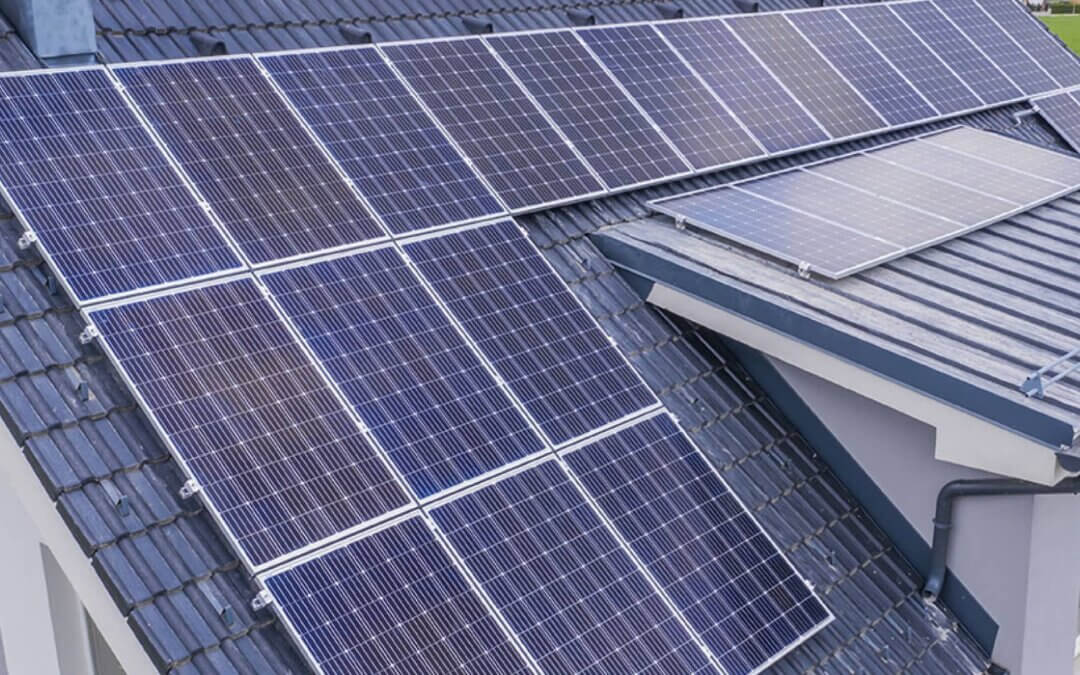With energy costs constantly on the rise and a growing focus on sustainability, many homeowners and businesses are choosing to install rooftop solar panels. But before you go solar, there’s an important factor you shouldn’t overlook, and that’s your roof. In our industry, we’ve seen firsthand how proper roof preparation can make or break a solar investment. Here’s what you need to know before installing rooftop solar panels.
1. Is Your Roof in Good Condition?
Solar panels can last 25–30 years, so your roof needs to be in shape to last just as long. Installing panels on a roof that’s already aging or damaged can lead to costly removals and re-installations. It’s often more cost-effective to replace your roof before installing solar panels.
What to check:
- Age of the roof (and its expected longevity)
- Signs of leaks, soft spots, or water damage
- Condition of shingles/panels, flashing, and underlayment
2. Can Your Roof Support the Weight?
Solar panel systems aren’t extremely heavy, but they do add weight, especially if your roof structure is older or wasn’t built with additional loads in mind. A professional roof inspection will determine if reinforcements are needed before installation.
The load-bearing capacity is especially crucial in regions prone to heavy snow or strong winds. Additionally, the compatibility of roofing materials matters, as not all types are ideal for the installation of solar panels.
3. Is Your Roof Positioned for Maximum Sun Exposure?
The amount of sunlight your roof receives directly affects the efficiency and return on investment ROI of your solar panels.
South-facing roofs typically offer the best exposure to direct sunlight. It’s also important to minimize shading from trees, chimneys, or nearby buildings, as even partial shade can reduce performance. The pitch or slope of your roof also affects how effectively panels capture sunlight, with ideal angles varying depending on your location.
4. Which Mounting System is Right for Your Roof Type?
Not all solar panel mounting systems work on all roofing materials. The system must be installed in a way that won’t compromise your roof’s waterproofing or warranty. A roofing expert can work with your solar provider to choose the safest, most effective solution.
5. Will Solar Installation Affect Your Roof’s Warranty?
Improper installation can void your roof’s warranty. It’s important to understand what’s covered before any work begins. At Farha Roofing, we’re always transparent about how your roof warranty can be protected throughout the process.
A few questions to keep in mind:
- Does your warranty allow third-party installations?
- Will your solar installer take responsibility for roof penetration issues?
- Can your roofing contractor and solar provider coordinate to protect your warranty?
6. Plan for Long-Term Access and Maintenance
Even though solar panels are low-maintenance, your roof isn’t. Biannual inspections, gutter cleanings, or emergency repairs still need to happen, and that means access to your roof is essential. Panels may need to be temporarily removed for major roof repairs, so factor in future maintenance when planning your system layout.
Why Work With a Roofing Expert First?
Before the panels go up, it’s important to make sure your roof is ready. By working with a trusted roofing company before your solar installation, you’ll get:
- A full roof condition assessment
- Honest advice about repairs or replacement
- Coordination with your solar provider
- Protection of your roof warranty
Installing solar panels is a smart investment, but only if your roof is built to support it. At Farha, we offer inspections at no cost, expert repairs, and full replacements to make sure your solar project starts on solid ground (or roof).
If you’re considering going solar, contact us today to schedule an expert roof inspection first!


Recent Comments